For decades, the Caribbean has been caught in the slipstream of other people’s wars – from cold war proxy battles to Washington’s “war on drugs” and “war on terror”. Our islands have too often been turned into the frontlines for policies scripted elsewhere but fought in our waters, our communities, and on the backs of our most vulnerable.
The recent US naval strikes against alleged “drug boats” leaving Venezuela, and the decision of Trinidad and Tobago’s prime minister, Kamla Persad-Bissessar, to grant access to territorial waters without first consulting the Caribbean collective of developing countries, Caricom, risk dragging our islands into yet another manufactured storm.
As US warships fire missiles at vessels they claim carry “narco-terrorists”, the Caribbean faces the prospect of being sacrificed in someone else’s theatre of war. The consequences could be catastrophic for livelihoods and fragile regional stability. Unless diplomacy and regional solidarity prevail, we could be destabilised in ways we are ill-equipped to endure.
The US narrative rests on a familiar trope: that the Caribbean is nothing more than a trans-shipment hub for narcotics flowing north. Geography makes the accusation plausible. For decades, cocaine from Colombia has moved through Venezuela, Guyana, Suriname and across the archipelago to Miami, New York, Madrid and London.
But the narrative is dishonest. The true driver is demand. The US insatiable appetite for cocaine and opiates created the billion-dollar trade routes that snake through Trinidad, Jamaica, the Bahamas and Guyana. Rather than own its addiction, the US projects blame outward, painting the Caribbean as “narco-territory” while denying the role of its own citizens as consumers, financiers, and enablers.
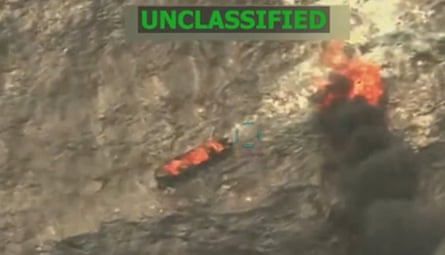
Fishing communities have long paid the highest price. In Trinidad and Tobago, countless fishers have been harassed, detained or shot at by Venezuelan coastguards. Some have been killed. These people, eking out a precarious living in overfished waters, now fear being mistaken for traffickers by US drones and warships.
When the US broadcasts videos of small boats exploding into fireballs, they endanger every fisher who dares cast a net in the Gulf of Paria, between Trinidad and Venezuela.
Washington’s sudden military zeal is telling. After decades of indifference to Caribbean pleas for fair trade, reparations and climate justice, we are asked to believe US destroyers lurk offshore to protect us. But the reality is this is about squeezing the Venezuelan president, Nicolás Maduro, destabilising the country and preparing the ground for regime change.
It would be naive to ignore the oil factor. Between Trinidad’s long-established energy base, Venezuela’s colossal reserves and Guyana’s massive discoveries, the southern Caribbean has become one of the most coveted hydrocarbon regions anywhere.
Donald Trump’s fixation on “narco boats” cannot be separated from the desire to influence who controls this wealth. From Iraq to Libya, Washington has repeatedly intervened in oil states, toppling governments and installing pliable leaders. The Caribbean must recognise the danger of being drafted into the next act of this playbook.
History shows the consequences; Grenada in 1983, Panama in 1989, Haiti through multiple interventions. Each was justified as defending democracy; each left behind wreckage. To believe these new strikes are purely about drugs is to ignore the US’s long habit of cloaking imperial ambition in moral language.
In a statement, Persad-Bissessar endorsed US naval forces’ presence as a necessary step to tacklee organised crime.
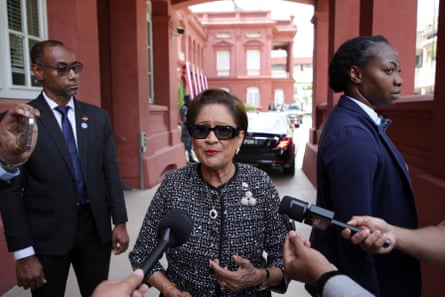
“For two decades, our country has been overwhelmed by bloodshed and rising violence,” she said. Acknowledging remarks by the US vice-president, JD Vance, she added: “He was right to point to our alarming crime and murder rates. My government will not be deterred by partisan outbursts or anti-American rhetoric when it comes to accepting help in confronting the terrorist drug cartels.”
In one stroke, she undermined the regional solidarity that has been the Caribbean’s only shield in international politics. Caricom exists precisely so that no island has to face down a superpower alone. Persad-Bissessar has inadvertently conceded a harsher truth: that her administration, like those before it, is clueless in curbing the crime and corruption that continues to bleed the nation.
Her unilateral approval of US access was dangerous statecraft. It weakens our collective negotiating hand and leaves Trinidad exposed as the naive accomplice of a superpower with a history of gaslighting its allies. The US knows it can pick off states one by one, securing “basing rights” or “access agreements” without facing a unified Caricom.
Venezuela’s response has been furious. Maduro branded the US strikes “extravagant, unjustifiable, immoral and absolutely criminal” and warned of “the biggest threat our continent has seen in 100 years”.
His vice-president, Delcy Rodríguez, told Trinidad and Guyana: “Don’t dare, don’t even think about it. You are lending yourselves to the perverse plans of aggression against the Venezuelan people.” She ridiculed US claims of narco-trafficking: “How can there be a drug cartel if there’s no drugs here?”
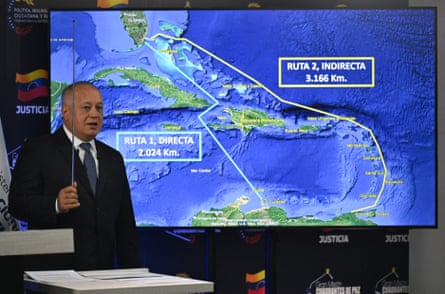
Diosdado Cabello, Venezuela’s interior minister, flatly rejected US allegations, saying: “They openly confessed to killing 11 people … none were drug traffickers.”
Caracas has since mobilised its navy and air force, raising the risk of accidental clashes at sea. With Trinidad tethered to Washington, the danger of being pulled into the line of fire is very real.
At the UN general assembly last week, regional leaders voiced their unease. Barbados’s Mia Mottley warned that militarisation of the Caribbean “could occasion an accident that put the southern Caribbean at disproportionate risk” and insisted that “full respect for the territorial integrity of each, and every state in the Caribbean must be respected.”
St Vincent and the Grenadines’ prime minister, Ralph Gonsalves, described US-Venezuela tensions as “most unhelpful”, reminding the world that the Caribbean had long declared itself to be a “zone of peace”.
Their interventions reflected a deep regional anxiety about becoming collateral damage in a quarrel between larger powers. Yet in sharp contrast, Persad-Bissessar used her own UN platform to defend her embrace of Washington’s presence, dismissing the “zone of peace” as an “elusive promise”, while justifying security cooperation with the US as necessary to combat crime.
The most chilling element of Washington’s narrative is the absence of any proof, though 11 people were killed in the first strike and three in the second. More, allegedly, were killed in subsequent strikes. Yet not a shred of credible evidence has been produced to show that these individuals were traffickers, much less members of the gang Tren de Aragua, as was claimed. Venezuelan officials insist their investigations found no gang affiliations.
Are Caribbean citizens simply expected to accept Washington’s word? After Iraq’s phantom weapons of mass destruction and after decades of interventions elsewhere justified by doctored intelligence, we know better. If these were truly narco-traffickers’ boats, why were suspects not detained and questioned? Why was the norm of investigation abandoned in favour of summary execution at sea?
The answer lies not in law but in politics. Trump thrives on chaos. His strategy is division, gaslighting and distraction. These strikes play directly to his Maga base – fiery video clips of boats blowing up, paraded as proof of “decisive action”. It is spectacle, not strategy.
To believe these operations are genuine counternarcotics measures rather than campaign optics is to ignore everything Trump has shown us about his politics of manipulation. And it is the Caribbean that risks paying the price for his theatre.
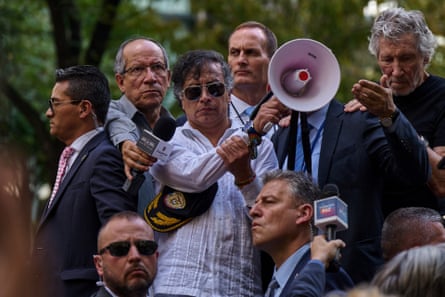
If this trajectory continues, the consequences will be dire. Fishers may abandon their livelihoods if they fear being mistaken for traffickers, collapsing entire coastal communities. Tourism will falter in a militarised Caribbean where warships and drones haunt the waters. Trade through the Gulf of Paria and regional ports could be disrupted, raising costs for fragile economies already strained by debt and inflation. Diplomacy will fracture as Caricom’s delicate balance with Washington and Caracas collapses, leaving small states exposed.
What is needed now is not more posturing but restraint. Talks between Trinidad and Tobago, Venezuela, Caricom, and Colombia – the historic source of the cocaine pipeline – are essential. The international community must demand transparency and de-escalation. Small island states cannot afford to become battlegrounds.
The Caribbean must also insist on restoring international norms: detain suspects, investigate, prosecute. To kill without evidence and bomb small vessels without warning or due process is a descent into lawlessness that endangers every fisher, trader and innocent seafarer.
Trinidad and Tobago, and the wider Caribbean, cannot be reduced to staging grounds for US electioneering or Venezuelan brinkmanship. Without restraint – from Caricom, the UN and sober voices in the hemisphere – the region risks being dragged into a conflict that is not of its making.
Our fishing industry, our tourism, our fragile economies all stand to suffer. And beyond this lies sovereignty over our most valuable assets: oil and gas. The southern Caribbean is a resource frontier of immense global importance. History shows that US interventions in oil-rich states rarely end in stability or prosperity for the people who live there.
Caribbean leaders must rediscover the discipline of solidarity, the wisdom of diplomacy, and the courage to say no to superpowers who mistake small states for pawns.
The price for silence will not be paid in Washington or Caracas, but in the lives, economies and futures of Caribbean people.

 German (DE)
German (DE)  English (US)
English (US)  Spanish (ES)
Spanish (ES)  French (FR)
French (FR)  Hindi (IN)
Hindi (IN)  Italian (IT)
Italian (IT)  Russian (RU)
Russian (RU)  2 hours ago
2 hours ago
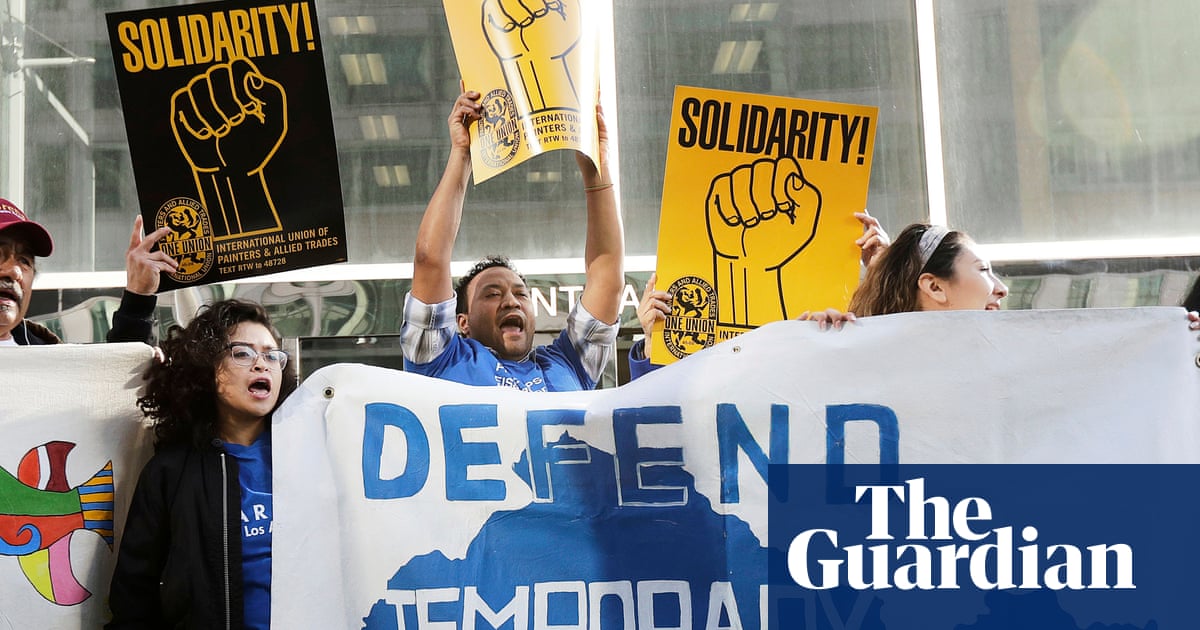

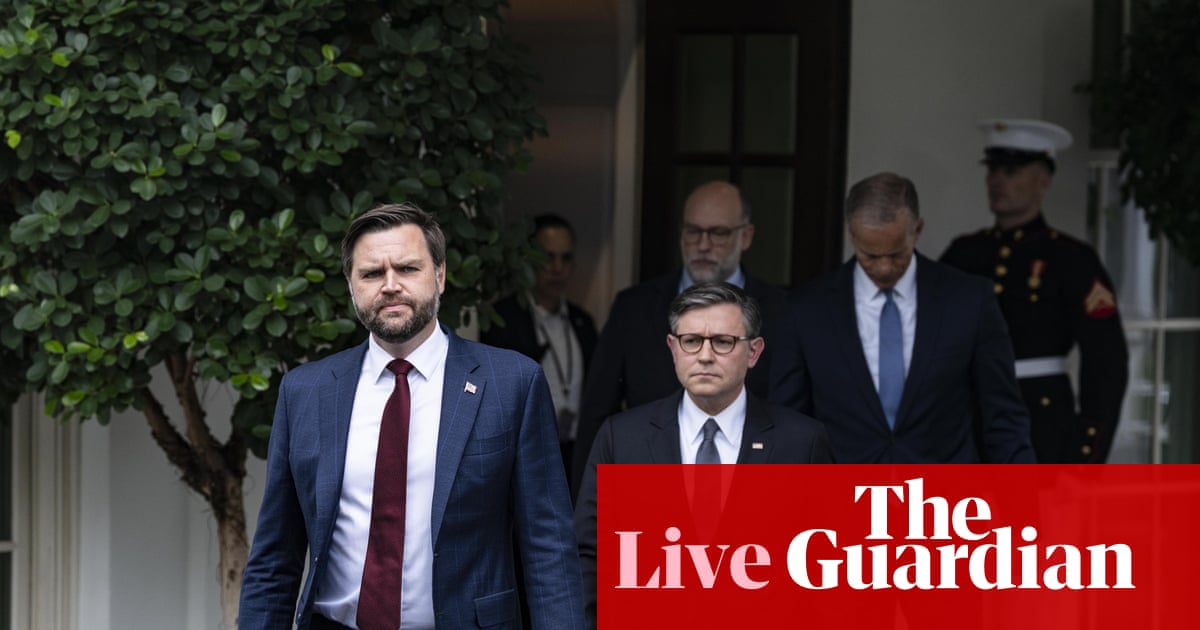


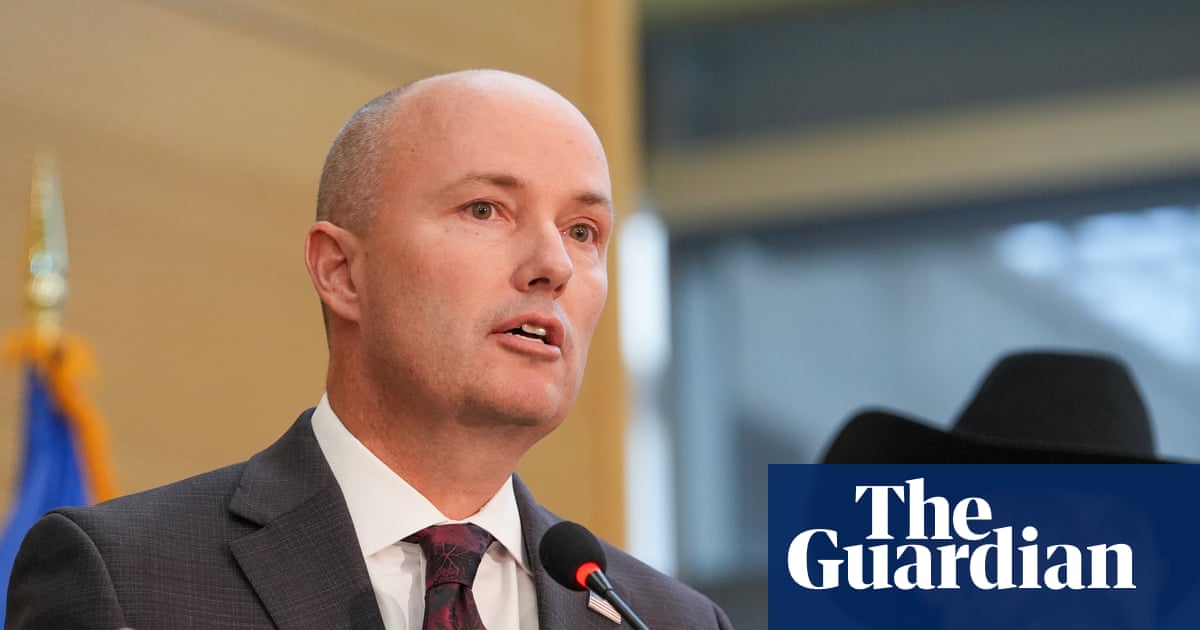


















Comments